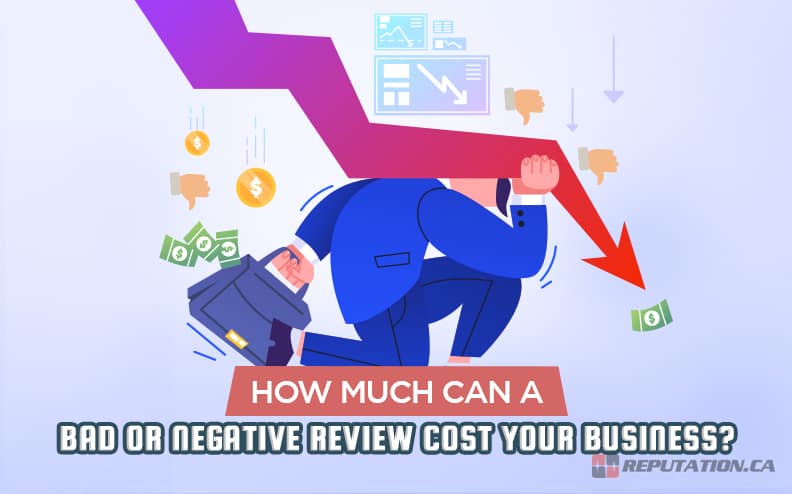Running a successful business is an exceedingly difficult task in the modern era. There is greater pressure for businesses to meet the expectations of their customers and ensure their satisfaction because word travels fast.
In the old days, word of mouth meant people were talking amongst themselves. While this did spread information, it was a limited spread contained to that customer’s immediate area. Nowadays, information technology has given rise to an information superhighway that connects everyone in the country, if not the world. We live in an era of Google searches, social media, and, much to corporate chagrin, online reviews.
While customer feedback is important, modern customers are more likely to flock to the internet to share their opinions than ever. The number of people without a social media profile or internet-based device is dwindling, leading more people to connect. This has had serious ramifications for corporate entities since online reviews are one of the most commonly employed tools.
These reviews allow people to share their satisfaction or opinion of you with everyone else who looks for you. These reviews spread like wildfire and can end up costing you customers and money. The question is, just how much do you stand to lose to these reviews?
Why Are Online Reviews So Important?
People posting their opinions online has been a common practice since the first chat program was released to the public. Back then, these comments hardly caused concern for businesses since people were still fairly limited in who they could contact. Nowadays, social media and online websites have evolved so everyone can access another person’s opinion.
While social media is a major outlet, one of the bigger concerns for modern companies is the existence of online review sites. These sites enable customers to leave an account of their experience with you and your product on a widely accessible platform. This allows their dissatisfaction to become public knowledge and directly impacts a company’s sustainability.
Some people believe that these reviews are hardly worth worrying about since people always leave their opinions online. Unfortunately, the standard is very different when a customer leaves their opinion about a company.

Customers, existing and potential, are more inclined to believe what another customer says rather than what the company says. This is because customers are painfully aware that the goal of a business is to generate a profit. Some companies have already proven that they view deception as an acceptable tool to accomplish that goal.
As of 2022, up to 93% of shoppers will read reviews about a company or product before making a purchase. This means positive reviews will encourage them to go through with the purchase, while negative reviews will drive them away. The growing popularity and importance of online reviews have placed companies under a microscope as far as customers are concerned. This is compounded by the fact that your aggregate review score will also affect how likely a potential customer is to commit to the purchase. The average customer is unlikely to use the services or products of a company with less than 3 stars. A company’s star rating is determined by the mean of the reviews they receive:
- If you receive primarily good reviews with only a few negative reviews, you will likely have a 4-to-5-star rating.
- If you receive a healthy mix of both, you will usually get a 3-star rating.
- If your reviews are primarily negative, you will likely have a 1-to-2-star rating.
This means you must remain aware of the ratio of good to bad reviews you receive if you want to maintain a successful business. Unfortunately, the severity of these reviews still escapes some companies, who choose to disregard their importance. This is why understanding just how much these reviews can cost you is important since you might be shocked to learn it can destroy your business.
How Much Do Negative Reviews Cost?
The goal of any company is to be profitable since the investment that goes into the business must be returned if the owner does not want to go bankrupt. Companies are most profitable when their product works as expected, their service is top-notch, and their customer relations are amicable. When one or more of these do not meet the customers’ expectations, they will be more inclined to leave a negative impression on a review site.
Even a single negative review can significantly affect a company’s profit margins. There are dozens of review websites readily available for any customer, but one of the most successful is Google’s built-in review system. Google reviews are often posted in a section right below a specialized pane that shows the company’s information to those who look it up. Which means Google reviews are very easy to locate.
Even when a single negative review exists, it does not end with that one person. While a single negative review will likely be buried beneath average and positive reviews, the customer will likely take to social media too. This is where the spread from a single negative review begins since a single social media user has an average of around 300 friends on their profile. This means their negative impression of your business spreads to at least 300 additional customers, potential or otherwise.
Let us say you sell wireless earbuds for $50.00 a unit, and a disgruntled customer posts how they broke instantly to their 300 friends. That $50.00 lost from the initial customer after they request a refund instantly increases to an additional $15,000.00 lost. All told, that amounts to $15,050.00 of lost revenue.

You also have to consider that each of those 300 friends might have additional friends unrelated to the original customer. This could cause that extra $15,000.00 to grow even larger and cost you more. The situation becomes bleaker if your earbuds are genuinely poor quality and you receive more negative reviews. Essentially, every negative review is $15,000.00 lost. Ten negative reviews amount to $150,000.00 lost, twenty equals $300,000.00 lost, and so on.
Additionally, every year the review remains, the more people will see it and further drive business away. This means every review should be treated as a major profit loss and something you must resolve as soon as possible.
Reviews might be seen as a nuisance by many corporate entities, but they are a right that no one can confiscate from the customers. While not all reviews are constructive, the concept was designed to help companies resolve issues with their products and services that might negatively affect customers. Nevertheless, too many companies take reviews personally and either fail to address them or address them with hostility, even though you can address reviews in a way that resolves the issue and restores some credit to your company name.
How to Deal With Reviews
When a negative review is posted about your company or product, it can be distressing since you likely take pride in your company. It is easy for people to get defensive when their livelihood is attacked, but the important distinction is that reviews are not attacks. Reviews are how customers express their dissatisfaction so you can take steps to resolve the issue.
Taking the review personally or treating the customer like an enemy will only worsen the problem and leave you dealing with the fallout. There is a right way to deal with negative reviews if you want to resolve the situation without harming your reputation further. The best way to do this is to treat the review as an opportunity to establish a dialogue with your customers.
When customers leave a negative review, they want to be heard and have the problem resolved. Otherwise, it feels as though you took their money and saddled them with a lackluster product and poor service. It would be best to approach a negative review with a level head and diplomatic disposition. The key to successfully diffusing a tense exchange like this is to read through the review carefully and take note of the specific issue they had.
Once you understand why they are upset, apologize for their unsatisfactory experience with the product or service. This apology might seem like you are giving in to them, but it presents you as understanding and willing to work through the issue.
Once you have proven you are here to help, you can take the opportunity to ask questions about their experience the review might have lacked. The key is to ask for details about their purchase, such as order numbers, the circumstances of the issue, etc. This information gives you a better understanding of what went wrong and what will be necessary to correct the situation. You can use that information to suggest compensation, such as an exchange for a faulty product, a discount on a future transaction, or whatever aligns with your industry and company policies. Sometimes, a refund and apology are all it takes to make amends for a genuinely wronged customer.

However, we are not so naïve as to believe every negative review posted about you is 100% true. Some try to take advantage of the review system to scam companies out of free products and services. They will either exaggerate the issue or outright lie about ever processing a transaction with you.
That is another reason the information search is so important to address reviews. The information allows you to confirm or deny that customer’s history with you and call them out when they are caught lying about a transaction. Catching a “customer” in a lie must be handled delicately since there might have been a miscommunication.
Do not outright accuse them of lying or exaggerating to manipulate you into compensating them. Rather, explain how the service or product is supposed to work, as outlined on your storefront, and where any misunderstandings might have occurred. If there was a misunderstanding, apologize to the customer and promise to revise the terminology on your storefront to prevent repeat incidents. Even if the customer is upset about the misunderstanding and insists you misled them, the rest of the people who see the review in the future will see your response and weigh that against the review.
Dealing with reviews requires a delicate touch and is not something you can go into with the mindset of defending yourself. You are addressing the review to resolve the issue for the customer first and foremost while simultaneously repairing your reputation. Treating it as a conflict will only worsen your image in the eyes of the other customers reading the exchange. Mishandling a review can be just as detrimental to your company’s finances as the initial review since it puts the conflict in the public domain.
Take Your Reputation Back!
Reviews can make or break a company, and you must try to regulate the negative reviews posted about you. A single negative review can cost a company thousands of dollars solely through the customer’s connections. This means whoever is placed in charge of handling these reviews must be diplomatic and have access to information that will enable them to resolve the issue. Without proper review management, the company’s reputation will plummet, making it almost impossible to maintain a successful business model. Unfortunately, not every company has the means to create a team dedicated to reputation management, which puts them at a disadvantage.

Fortunately, reputation management is not something you have to do alone. We at Reputation specialize in regulating and managing the reputations of businesses from Canada to the United States. Our services include review management and extend to social media, public relations, and even Wikipedia pages.
Our mission is to help protect your reputation from potential damage by limiting the amount of harmful information available to the public. We also aim to resolve conflicts with customers who might be dissatisfied with your business. If you need a reputation management team, visit our website and take your reputation back!
Do you have any questions about reviews, how negative reviews can impact your business, or anything else related? If so, please feel free to reach out and contact us if you ever feel the need! We’d be more than happy to answer any and all of your questions.











